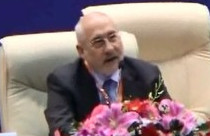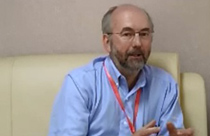Ecological ethics helps address relationship between humanity, nature
Author : ZHANG JIE Source : Chinese Social Sciences Today 2018-07-27
The global ecological crisis is pushing the world to reexamine the relationship between humanity and nature. For some scholars, ecological ethics as an applied branch of ethics should speed up its transformation from theories to guiding practices.
Zhang Lemin, an associate professor from the School of Marxism at Shandong University, said that, with the help of the advancement of technology in the modern age, humanity seeks too much from nature and treats nature as a subject to be conquered and controlled. Coexistence between humanity and nature is hardly taken into consideration, he said. However, many ecological problems eventually forced people to reflect on their actions, and that is the historical context against which ecological ethics emerged, he said. Taking “ecological morality” as its subject of study, ecological ethics broadens the scope of traditional ethics, which focuses on interpersonal relationships, and instead applies ethics to restrain and regulate humanity’s activities that involve nature.
Based on a moral investigation of the ecological crisis, ecological ethics transcends the limits of mainstream modern ethics, which focuses on the social community, and extends its moral care to animals, plants and the entire ecological world, said Zhang Pengsong, a professor of philosophy from Heilongjiang University. Ecological ethics acknowledges the inherent value of nature and highlights the core role of the ethical relationship between humanity and nature, he said.
As the study of ecological ethics advances, scholars are paying attention to not only the natural ecological environment, but also the social and spiritual aspects of ecological issues, he said. Scholars of ecological ethics studies reflect on the material life influenced by economism and consumerism, and seek ways of improving people’s happiness through the primordial emotions that come from experiences with the ecological world, Zhang said.
Topics of practical ecological issues draw notable attention from scholars of ecological ethics studies. Zhang points out several aspects of this situation: In terms of environmental justice, at first, scholars focused primarily on describing the phenomenon and paid little attention to the construction of theories. Recently, the increasing attention paid to theoretical studies has inspired heated discussions.
In terms of development, scholars are assessing ecological ethics by resorting to a treasure mine of traditional ethical philosophies. Chinese scholars mostly elaborate on traditional ethical thoughts by valuing the idea that “the human race is an integral part of nature” as well as the notion of “respect for life,” Zhang said. These philosophies are illuminating for scholars who study modern ecological ethics, he added.
In addition, ecological ethics is discussed in the context of the building of an ecological civilization, Zhang said. Scholars of ecological civilization reflect on the mode of production and lifestyle of the industrial civilization, and try to introduce ecological ethics as a guide in the enlightenment, moral practice and transformation of people’s lifestyle, he said. Through these studies, ecological ethics can be associated with lifestyle and the ability to pursue happiness, he added.
In regard to the development trends of current ecological ethics, Zhang suggests more attention be paid to the consensus reached among and integration of various theoretical studies, through which the harmonious coexistence among these different academic schools can be achieved.
Also, since ecological ethics is a discipline that lays particular stress on its application effects, Zhang suggests more efforts should be done to apply theories into practice. Last, ecological ethics has been going global as current ecological problems become global issues, Zhang said. He suggests scholars should explore the wisdom of ecological ethics in all cultures and establish a global ecological ethics through mutual learning among all civilizations.
Bao Qingde, a professor of philosophy from Inner Mongolia University, said that humanity has justification to exploit and change the nature for its own existence and development. However, the conscious activities of humanity should not just be seen as a one-dimensional change on nature, but also as a pursuit of green development and a conscious pursuit of a harmonious coexistent relationship between humanity and nature.
(Edited and translated by CHEN ALONG)
Interview with Wang Gungwu on significance of studying overseas Chinese
Wang Gungwu is a distinguished Australian historian who studies overseas Chinese. He currently works at the Faculty o...
-
On the rat/mouse of the zodiac
2020-02-20
-
Regional development calls for Huaihe culture’s soft power
2020-01-10
-
Archaeological discoveries unveil Maritime Silk Road
2020-01-06
-
China’s industrial art printing
2019-12-10
-
Yue-Gan Ancient Road: A journey into Hakka history
2019-05-13
-
The Lantern Festival in Dream of the Red Chamber
2019-02-18














 2011-2013 by www.cssn.cn. All Rights Reserved
2011-2013 by www.cssn.cn. All Rights Reserved